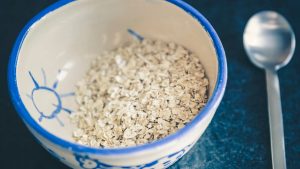Women’s body tends to lose essential nutrients and minerals after it reaches a certain age and that’s when it becomes even more important to have a proper diagnosis of your body and have balanced meal. Owing to the pacing times we live in, watching what we eat becomes a task as there is usually no time to ponder on these things and we go about with a “eat to stuff yourself” approach.
Also Read: Attention ladies! Here are signs that you need a gynaecologist, immediately
However, this attitude and practice can cause some serious troubles in the body, especially after the age of 30. Women in these years go through a lot of changes, like menstruation, health issues, hormonal issues and pregnancy that makes the body more vulnerable. So when you hit the sweet 30, make sure that certain nutrients are always present in your diet.
In this article, we will list some essentials for women aged 30 and above.
Iron
Studies have proved that women suffer from anaemia more than men and hence Iron is an important nutrient for women no matter what their age is. However, as you age, you become more vulnerable to deficiencies and health problems. Hence, Iron should be a must-have agent in your diet.
Also Read: Common period myths busted: Cramps, food habits and workouts
Folic acid
Folic acid is an essential nutrient for cellular reproduction and cell growth. Women of childbearing age, especially those planning to get pregnant, should increase their intake of B vitamin folate.
Vitamin D
Vitamin D is very important for bone and muscle health and it has been proven that women after 30 tend to lose bone density, thus Vitamin D is absolutely essential for this age group. Vitamin D also helps in absorbing the extra calcium and supports heart health. It can even help in your weight loss journey.
Magnesium
Magnesium is important because it helps the body produce the protein it required and also keeps blood sugar levels stable. Women with magnesium deficiency may experience muscle cramps, unexplained fatigue, mood disorders, high blood pressure, irregular heartbeat, nausea, and muscle weakness.






